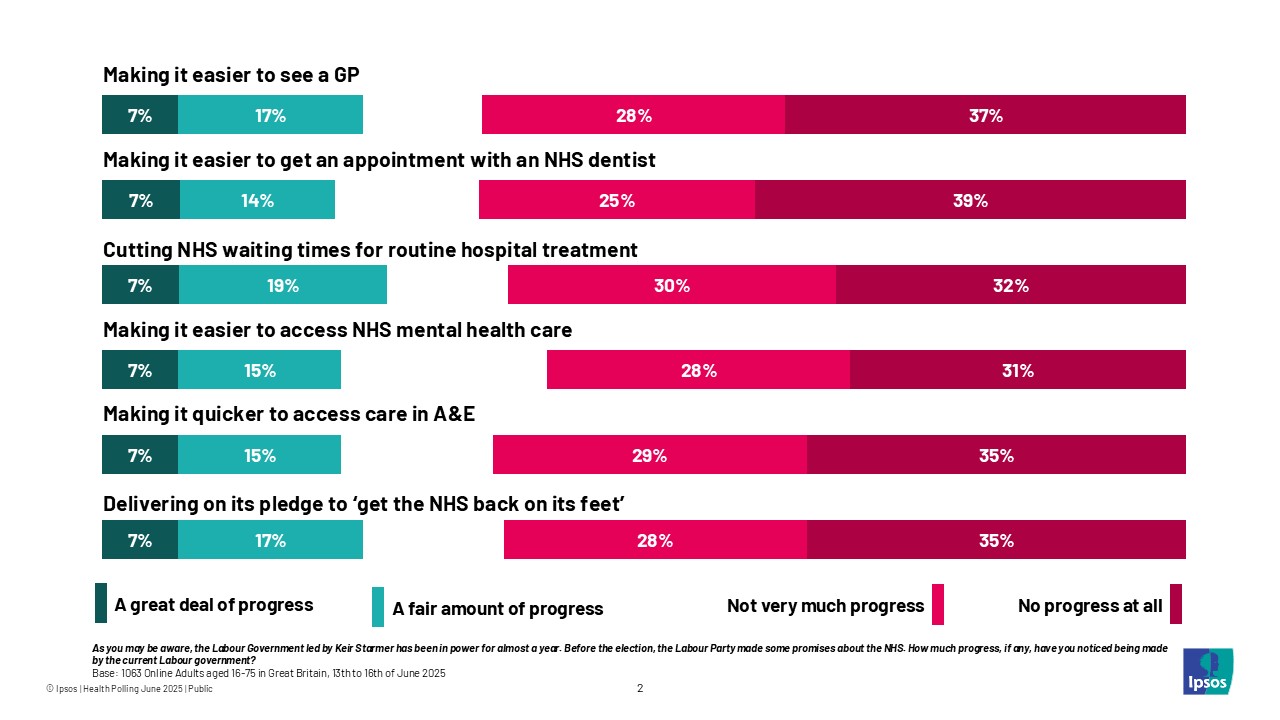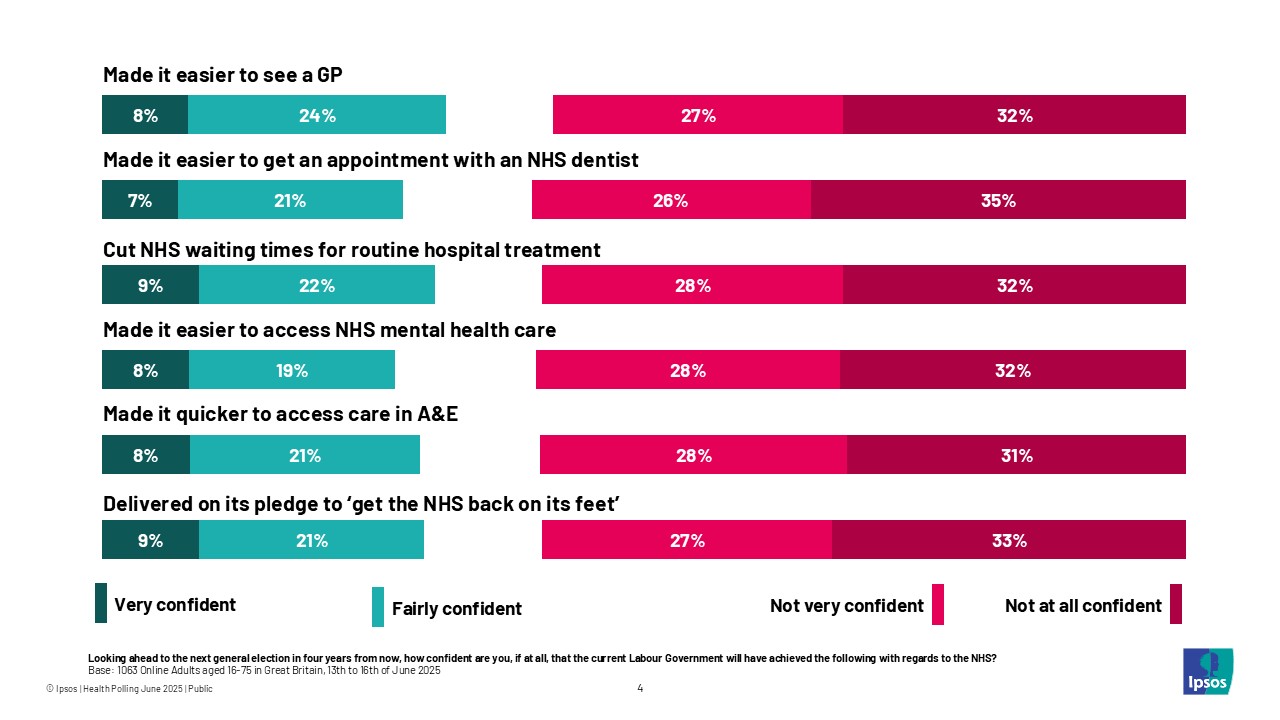Public yet to see Labour Government's progress on NHS pledges, Ipsos poll reveals
A new poll by Ipsos in the UK, for the Daily Mail and Guardian, reveals significant scepticism about the Labour government's progress on key NHS pledges, almost a year after they took office. The survey, conducted between June 13th and 16th, 2025, among 1,063 adults in Great Britain, explores public perceptions of the government's performance against promises made regarding the NHS.
Key findings
- Mixed perceptions of progress: When asked how much progress the government has made on specific NHS pledges, the public offered significant scepticism.
- Easier GP access: A quarter (24%) of Britons believe the government has made a great deal or a fair amount of progress on making it easier to see a GP. However, a significant 65% feel they have not seen very much or any progress. Perceptions of progress are highest among Labour voters (41%), however even among those who voted for the party last year half (52%) say they have not seen progress.
- Cutting waiting times: 26% perceive progress in cutting NHS waiting times for routine hospital treatment, while 63% believe little progress has been made. Once again just over four in ten (43%) of Labour voters say that they have seen progress, while half (50%) say they have not.
- "Getting the NHS back on its feet": 24% think the government is delivering on its pledge to "get the NHS back on its feet," but 63% disagree. Again, Labour voters are more likely to say they have seen progress (44%), though still half (50%) say they have not. Optimism is highest among ethnic minority groups, with half (49%) saying they have seen progress, compared to two in ten (20%) from white ethnic groups. In addition, 38% of those aged 16-34 say they have seen progress, compared to just 15% of those aged 55-75, as do 31% of men (compared with 18% of women).
- Other: Similar figures were recorded for making it quicker to access care in A&E (23% saying there has been a great deal or fair amount of progress), making it easier to access NHS mental health care (22%), and making it easier to get an appointment with an NHS dentist (22%).

- Confidence looking ahead: Public confidence in the Labour government's ability to fulfil their NHS pledges by the next general election is also low:
- Easier GP access: 31% are very or fairly confident that the government will make it easier to see a GP, while six in ten (59%) are not confident. Confidence rises to just over half (53%) of 2024 Labour voters.
- Cutting waiting times: 30% are confident that the government will cut NHS waiting times for routine hospital treatment, while six in ten (60%) are not confident. Once again, just over half (53%) of 2024 Labour voters express confidence.
- "Getting the NHS back on its feet": 30% are confident that the government will deliver on its pledge to "get the NHS back on its feet", while six in ten (60%) are not confident. Confidence is highest among Labour voters (54%), ethnic minority groups (51%), and people aged 16-34 (43%), and males (36%).

Commenting on the findings, Anna Quigley, Research Director at Ipsos said:
These findings highlight the challenges facing the Labour government in convincing the public that they are making headway on their NHS pledges. While there are some signs of progress, particularly among Labour voters, younger Britons, and ethnic minority groups, a significant proportion of the population remains sceptical. The government will need to demonstrate tangible improvements in NHS services to build broader public confidence.
Technical note:
- Ipsos interviewed a representative sample of 1063 adults aged 16-75 across Great Britain. Polling was conducted online between the 13th to 16th of June 2025.
- Data are weighted to match the profile of the population. All polls are subject to a wide range of potential sources of error.



